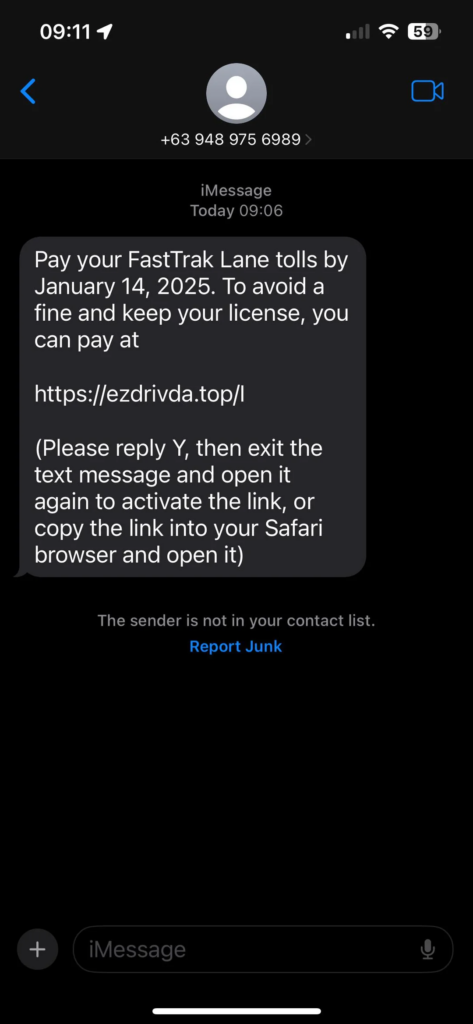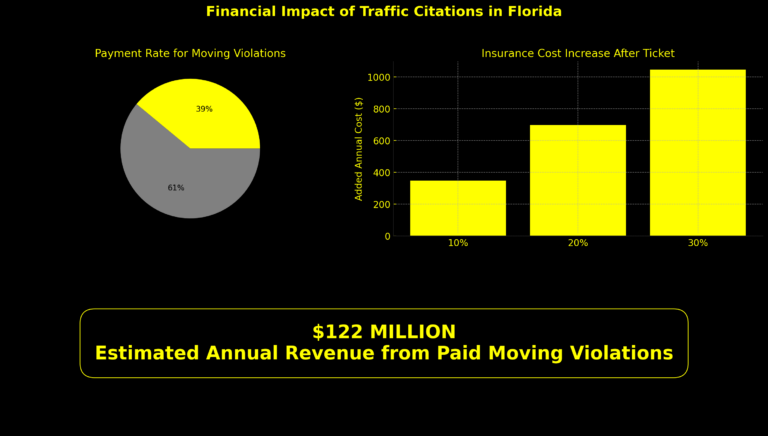Scams targeting drivers are on the rise, and one particularly sneaky tactic involves fraudulent text messages about unpaid tolls. These messages prey on the fear of penalties, creating urgency and tricking people into sharing personal information or making payments. Here’s how to spot these scams and what you should do if you receive one.
Back in 2024, at least 10 fraudulent Sunpass websites were shut down according to this report. However, based on this recent Reddit thread, the scams are continuing to hit Floridians by text message. Today’s scams seem to mostly involve unpaid tolls, however, sending fake red light camera tickets is another method used in the past. Back in 2022, we warned everyone about this scam too!
Spotting a Scam: Red Flags to Watch For
Not every unpaid toll message is legitimate, so knowing the warning signs can save you from a scam. Here’s what to look out for:
- Unexpected Messages
Did you recently drive through a toll road? If the text seems out of the blue and you haven’t used toll roads, it’s a major red flag. Scammers often send mass texts hoping to catch someone off guard. - Generic Greetings
Messages that say “Dear Customer” instead of your name or vehicle information are likely scams. Legitimate agencies usually include specific details about your account. - Suspicious Links
These texts almost always include a link, urging you to click and pay right away. The link might look official but usually leads to a fake payment portal designed to steal your credit card or personal information. - Pressure to Act Immediately
Scammers rely on fear tactics, like threats of fines or legal action, to rush you into paying. Government agencies or toll authorities won’t demand immediate action through text messages. - Poor Grammar and Spelling Errors
Official correspondence is typically well-written. If the text is full of typos or awkward language, it’s likely fake.
Here is a recent example:

What to Do if You Get One of These Texts
- Don’t Click the Link
The easiest way for scammers to steal your information is by tricking you into clicking a malicious link. Resist the urge, no matter how official it looks. - Verify the Claim
If you’re unsure whether the toll is unpaid, check your records directly. Visit the website of your state’s toll authority—such as Florida’s SunPass or E-ZPass—and log in to your account to confirm your toll history. - Look Up the Number
Search for the sender’s phone number online. Many scam reporting sites list numbers used in these schemes. - Report the Scam
Forward the text to 7726 (SPAM), a service that helps mobile carriers block scam messages. You can also report it to your local toll authority and the Federal Trade Commission (FTC). - Delete the Message
Once you’ve reported the text, delete it from your phone. This reduces the chance of clicking the link accidentally in the future.
Stay One Step Ahead
Scammers are always evolving, but awareness is your best defense. Legitimate toll authorities don’t communicate unpaid toll notices via text; instead, they send mail or electronic invoices if you’re enrolled in a system like SunPass. Keeping this in mind can help you avoid falling victim.
When in doubt, double-check through official channels. If you’ve received a suspicious toll-related text, and you’re unsure about its legitimacy, consult a traffic lawyer. At The Ticket Clinic, we help drivers navigate confusing situations like these and ensure they don’t fall prey to scams.
Stay alert, stay informed, and don’t let scammers take you for a ride!



